What's the best pillow position for the best night's sleep? Sleep experts weigh in
Because sometimes it's the small things that can have a big impact on your sleep quality
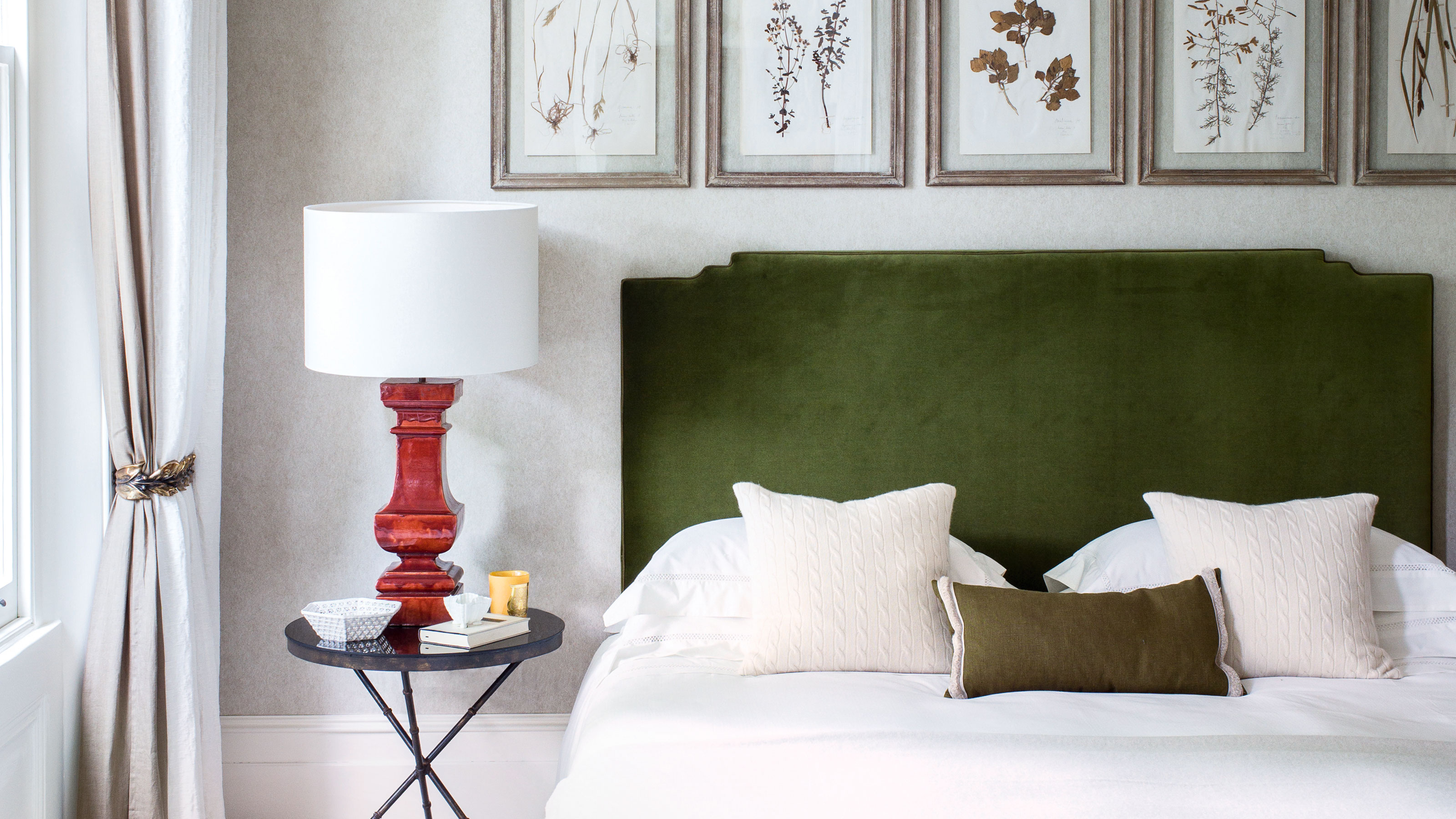

When trying to achieve the best night's sleep, we put a lot of store on our mattress choices. And of course, that makes sense, the right mattress can make or break a night's sleep. But your choice of pillow is just as important. And it's not just about choosing the best pillow either, it's about the whole setup, how many pillows you have, and what positions they are in.
If you find you are waking up feeling unrested, or with aches and pains in your back and neck, it's probably time to try something different with your pillow. A simple switch can make all the difference. So we asked the experts what are the best ways to sleep with your pillow, how can we be using pillows to get a comfier, more supportive night's sleep?
Why is it important to have the right pillow in the correct position?
If you can’t get quality sleep due to discomfort or wake up the next morning with aches and pains, it may be time to evaluate if your pillows may be to blame. 'Joints can become sore when held at the extreme of their normal range of motion for prolonged periods of time,' explains chiropractor Rubina Tahir. This includes during sleep (after all, we spend approximately a third of our lives catching ZZZ’s), but also while texting, driving, and sitting with poor posture.
'Pillows are designed to support the natural curves of your spine,' Dr. Tahir continues. 'Too many pillows can force your head into forward flexion, and you will likely wake up with a stiff neck or wake up in the middle of the night, which leads to non-restorative sleep habits.'
Moreover, the type of pillows you need and how/where to place them will largely depend on your preferred sleeping position. For instance, Dr. Tahir explains that 'Flat pillows aren’t suitable for back or side sleeping, as the curve in the neck should always be reinforced.'

Rubina Tahir is a board-certified Chiropractor, and describes herself as 'a woman on a mission to inspire healthy lifestyles'. Rubina earned her Bachelor of Science in Biology from the University of Western Ontario (2002), her Doctorate of Chiropractic (2005) from New York Chiropractic College, and her Medical Acupuncture Certificate from McMaster University (2012).
What's the best pillow position based on your sleep position?
Back sleepers
According to Dr. Tahir, back sleepers should avoid sleeping on stacked pillows. Otherwise, they’ll run the risk of waking up with a headache, stiff neck, and potential TMJ pain. 'Proper alignment is achieved by supporting the natural curves of the spine,' she shares. 'This is done by making sure the pillow offers support to the curve of the neck.' Again, flat pillows are a no-go for back sleepers, as are feather pillows, and definitely never try sleeping without a pillow.
Instead, she says that back sleepers will get more support from the best memory foam pillow or a water pillow – as well as sleeping with a pillow beneath the legs. 'If you sleep on your back and don’t use a pillow under the hamstrings, you could be putting unnecessary strain on your hips and lower back,' Dr. Tahir warns. 'This will increase wear and tear on joints, putting you at risk for arthritis.' To avoid this strain, she recommends placing a firm pillow (or two, as needed) beneath the hamstrings, which can also help provide relief from aches and sciatica.
Side sleepers
Side sleepers may find the best night’s rest by sleeping on a bucket-style pillow. (Dr. Tahir recommends the D-Core Cervical Support Pillow in particular, which she says is also suitable for back sleepers.)
'This style of pillow will support the neck as well as provide room for the shoulder joints to rest comfortably,' she explains. In addition, she suggests that 'side sleepers place a non-bulky wedge pillow between the knees to achieve optimal pain-free angles for the hips, knees, and ankles.'
Stomach sleepers
If you regularly sleep on your stomach, Dr. Tahir strongly urges you to train yourself to sleep in a different position. She says it’ll take about two weeks, but it’s doable and worth the potential sleeplessness as you adjust. According to the chiropractor, a pillow will do little to provide support in this position as it’s innately jarring for the joints and muscles.
'Imagine walking around all day with your head turned to one side. Your joints will become stiff and muscles will develop trigger points (aka knots),' she notes. While she understands it may feel comfortable to lay on your stomach before catching shut-eye, that’s only because the muscles are still active. 'During sleep, muscle activity and breath rate decrease, so what starts off feeling comfortable is not the case for deep sleep.' she explains.
With these points in mind, if you absolutely can’t switch from stomach sleeping, a thin, low pillow will promote alignment without causing additional undue stress.
The best pillows for a better night's sleep
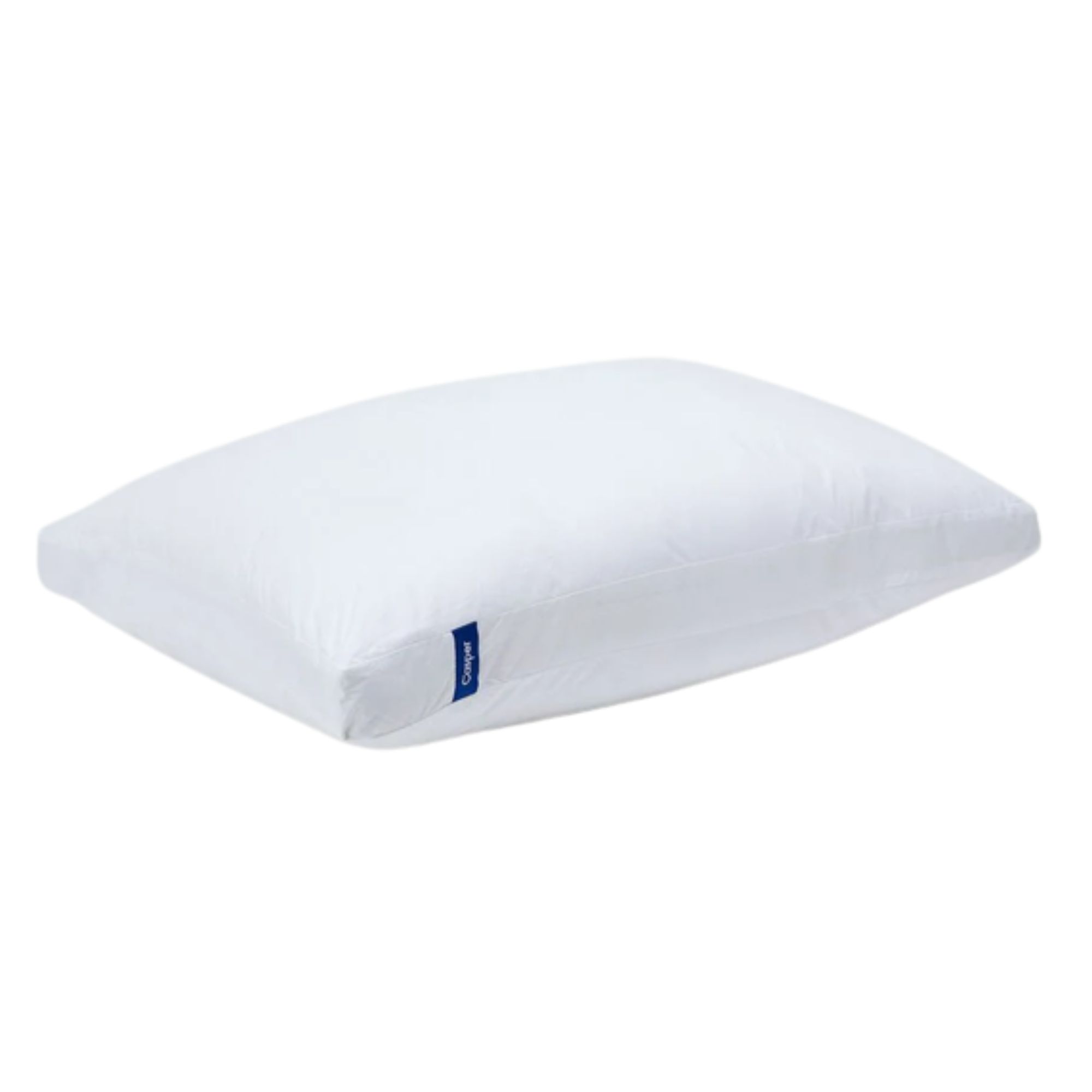
This pillow is the perfect middle ground for those who switch sleep positions during the night. With a medium loft, it's not too soft, nor too firm to help most sleep comfortably. We loved it on test, and it has amazing customer reviews, with no complaints of a stiff neck.
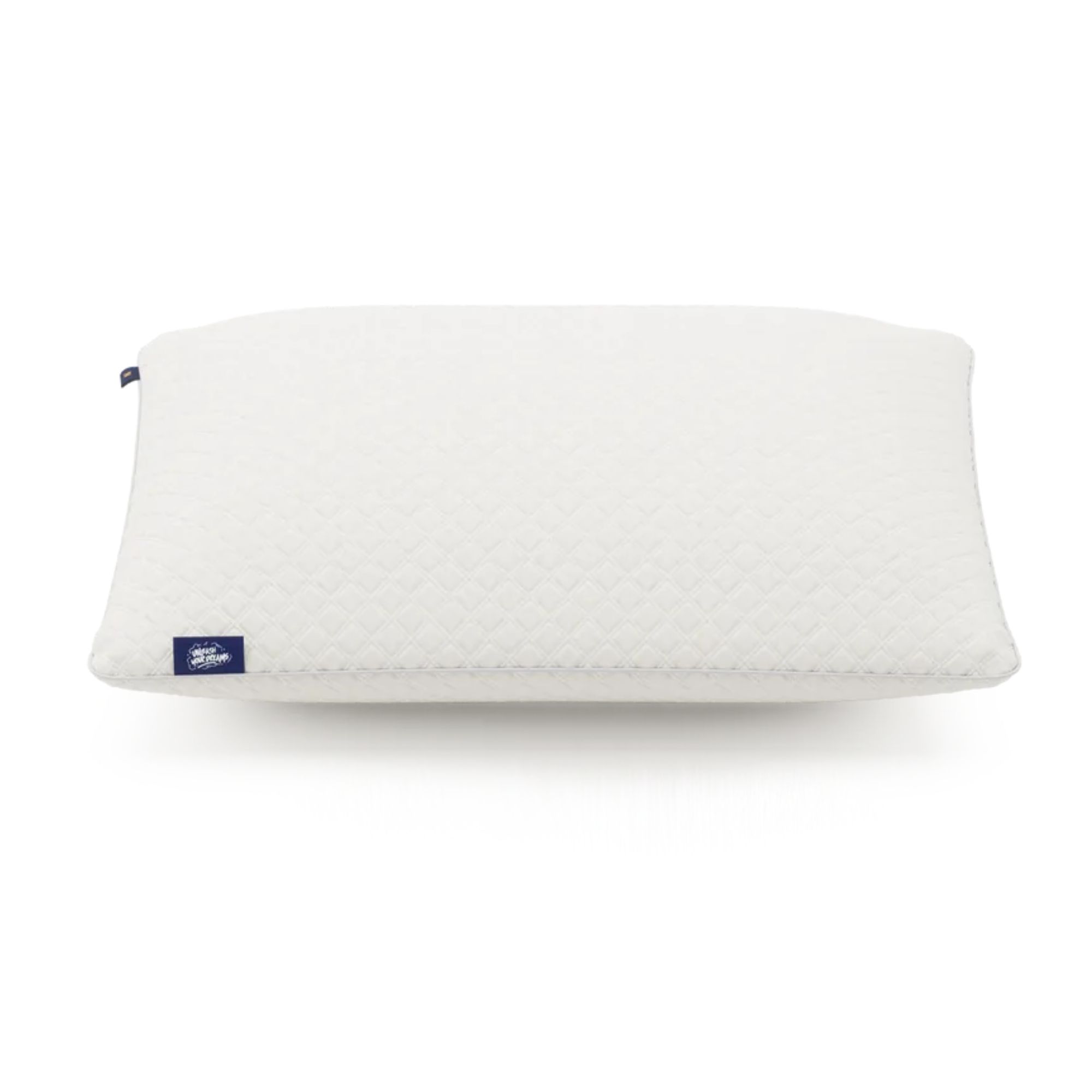
If you're a back sleeper with a stiff neck, you should switch to the Nolah squish. Thin, but not flat, you can stack the two pillows to create the perfect pillow height that molds to your body, and keeps your neck and spine supported.
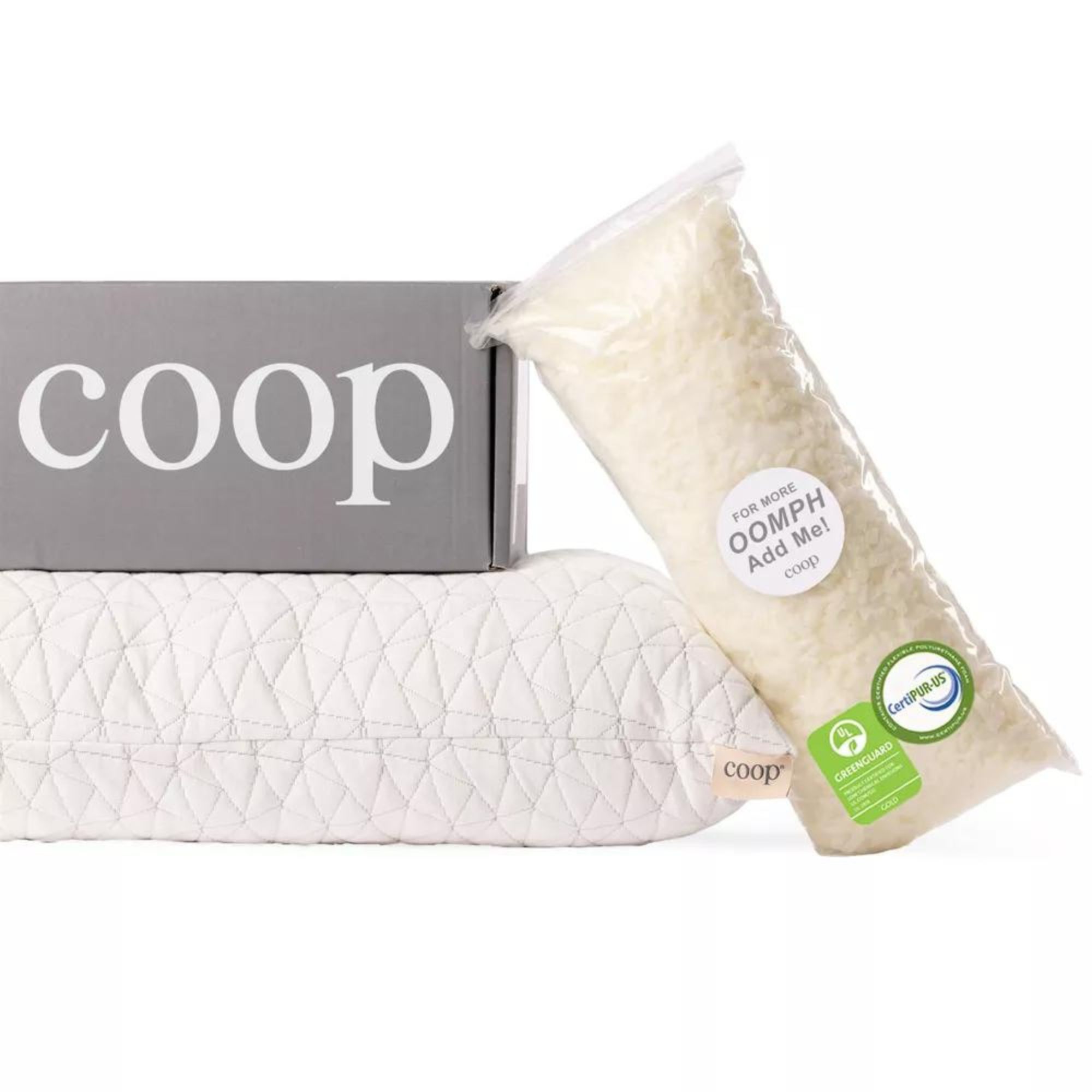
A good choice for side sleepers, and those unsure which size pillow might be best for them without trying. The coop home pillow can be adjusted by adding or removing the memory foam fill. It'll fit the gap that side sleepers need to keep their head at the right height.
FAQs
How many pillows should you sleep with?
How many pillows to sleep with is personal, and down to how you sleep and what you feel is most supportive and comfortable. In general, one pillow is best and tends to support all sleeping positions, however, some many find it more comfortable to sleep with two stacked thinner cushions than a single thick one. Just be sure not to stack too many pillows as this can affect the curve of your neck and cause stiffness in the morning.
Is it bad to sleep without a pillow?
Whether it's a good idea to sleep without a pillow depends on your sleep style. In general, it's best to sleep with some kind of support behind your head, even if you choose a really flat pillow. If you sleep on your back you should always use a pillow, two ideally, but if you sleep on your side or front, you could try sleeping without a pillow and see how it suits you. So long as you personally don't feel any negative effects, sleeping without a pillow is not a bad thing.
The best pillow position and how many you should have is personal. So we would advise you just to test out different arrangements until you find what's right for you. Just always ensure your spine is aligned, your neck isn't too curved and you feel your pillow position gives you enough support so you don't wake up with any aches or pains.
Sign up to the Homes & Gardens newsletter
Design expertise in your inbox – from inspiring decorating ideas and beautiful celebrity homes to practical gardening advice and shopping round-ups.
Michele Ross is a freelance wellness writer based in Los Angeles. Her specialties include nutrition, gut health, sleep, mental health, and fitness.
-
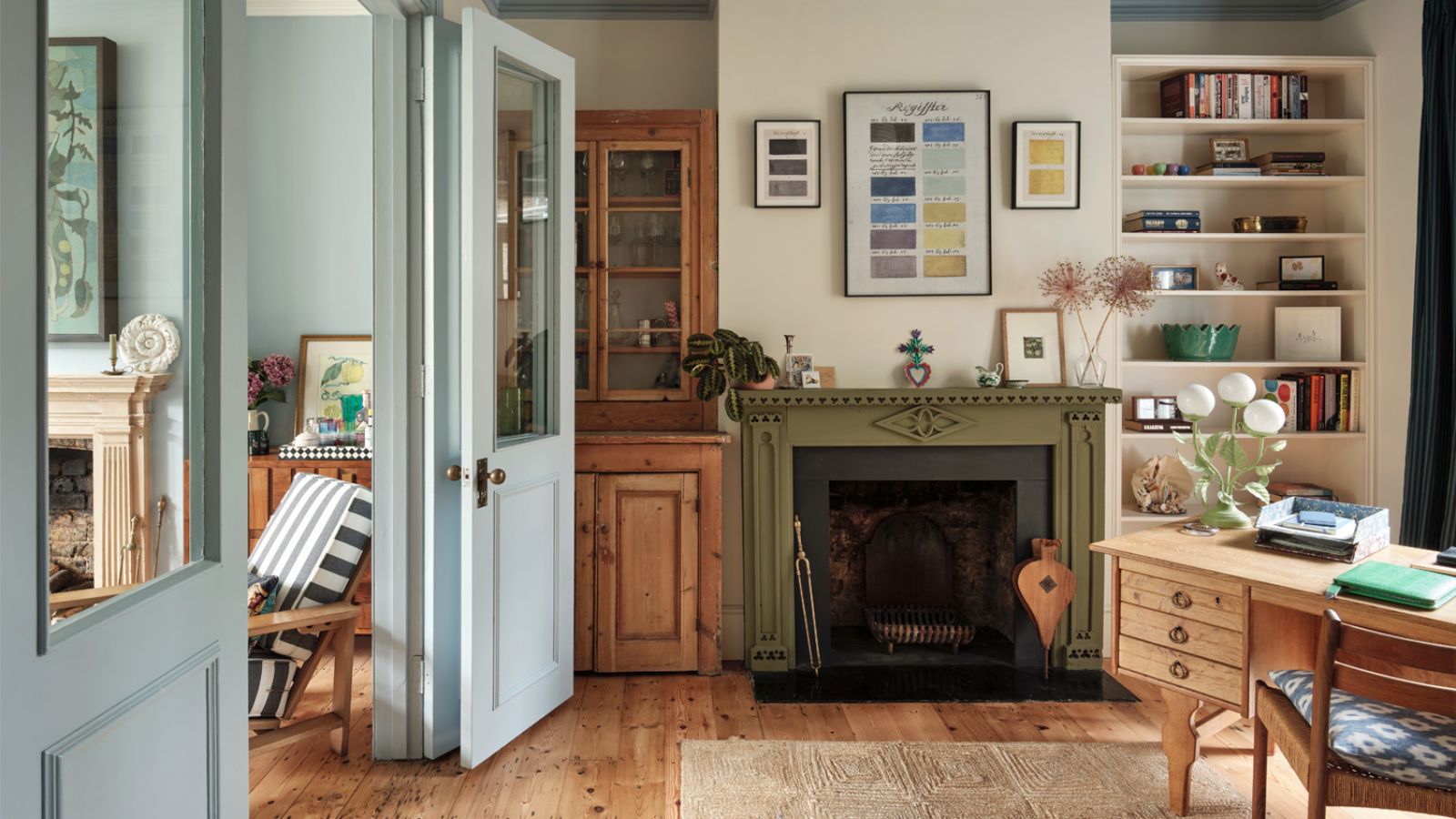 5 surprising but brilliant ways to clean with old socks – from perfectly buffing stainless steel to deterring pests naturally and more
5 surprising but brilliant ways to clean with old socks – from perfectly buffing stainless steel to deterring pests naturally and moreTackle dust in tricky corners, clean your mirrors and even banish bad odors with those rogue single socks
By Andy van Terheyden Published
-
 How to grow astilbe – expert advice on cultivating this shade-tolerant flowering perennial
How to grow astilbe – expert advice on cultivating this shade-tolerant flowering perennialShade-tolerant and pest-resistant - astilbe are hardy and tough perennials that can thrive in many settings
By Ellen Wells Published
-
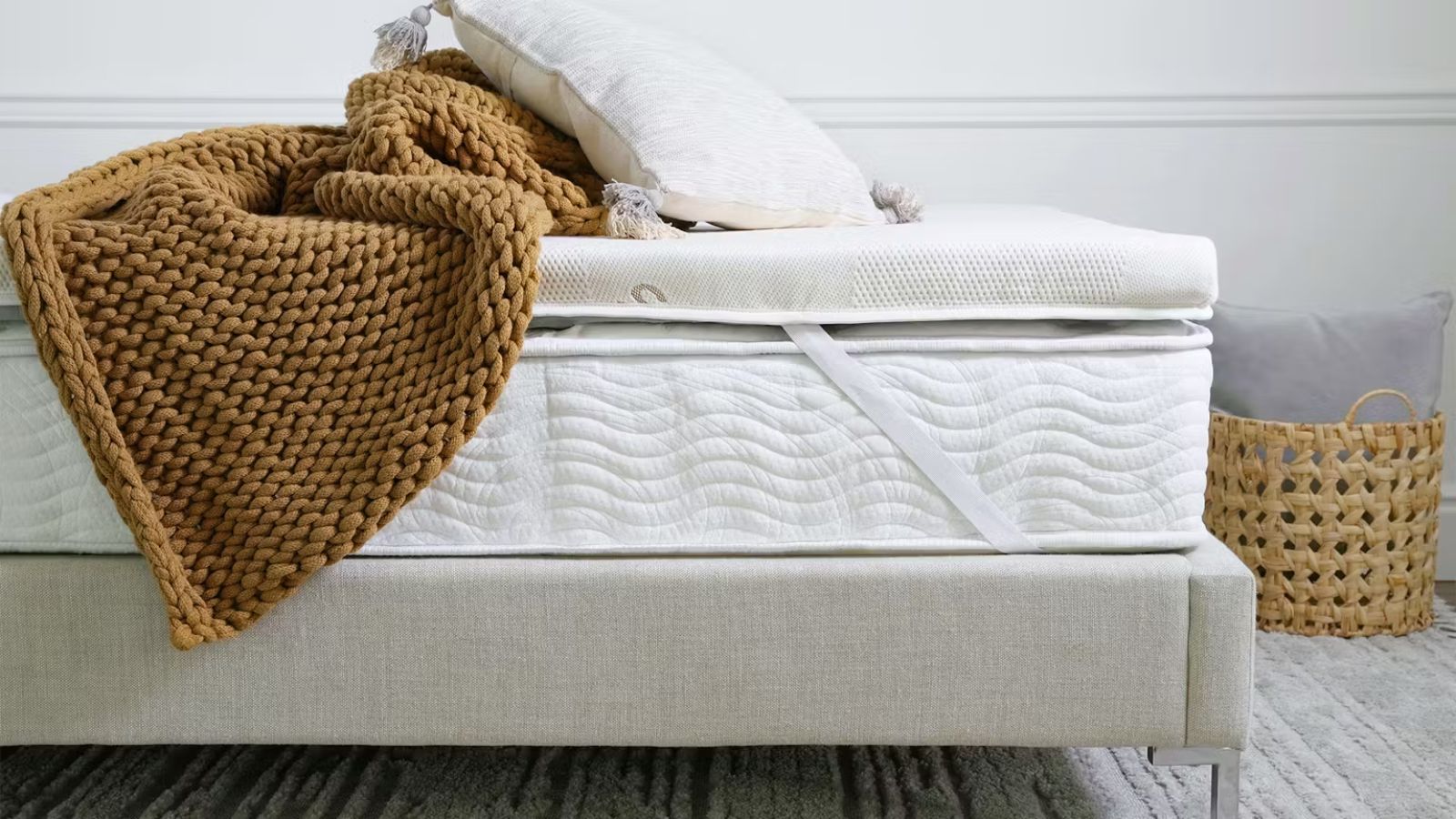 How we test mattress toppers – H&G's expert review process explained
How we test mattress toppers – H&G's expert review process explainedHere's everything you need to know how we test mattress toppers for pressure relief, thermoregulation, motion isolation, and edge support
By Emilia Hitching Published
-
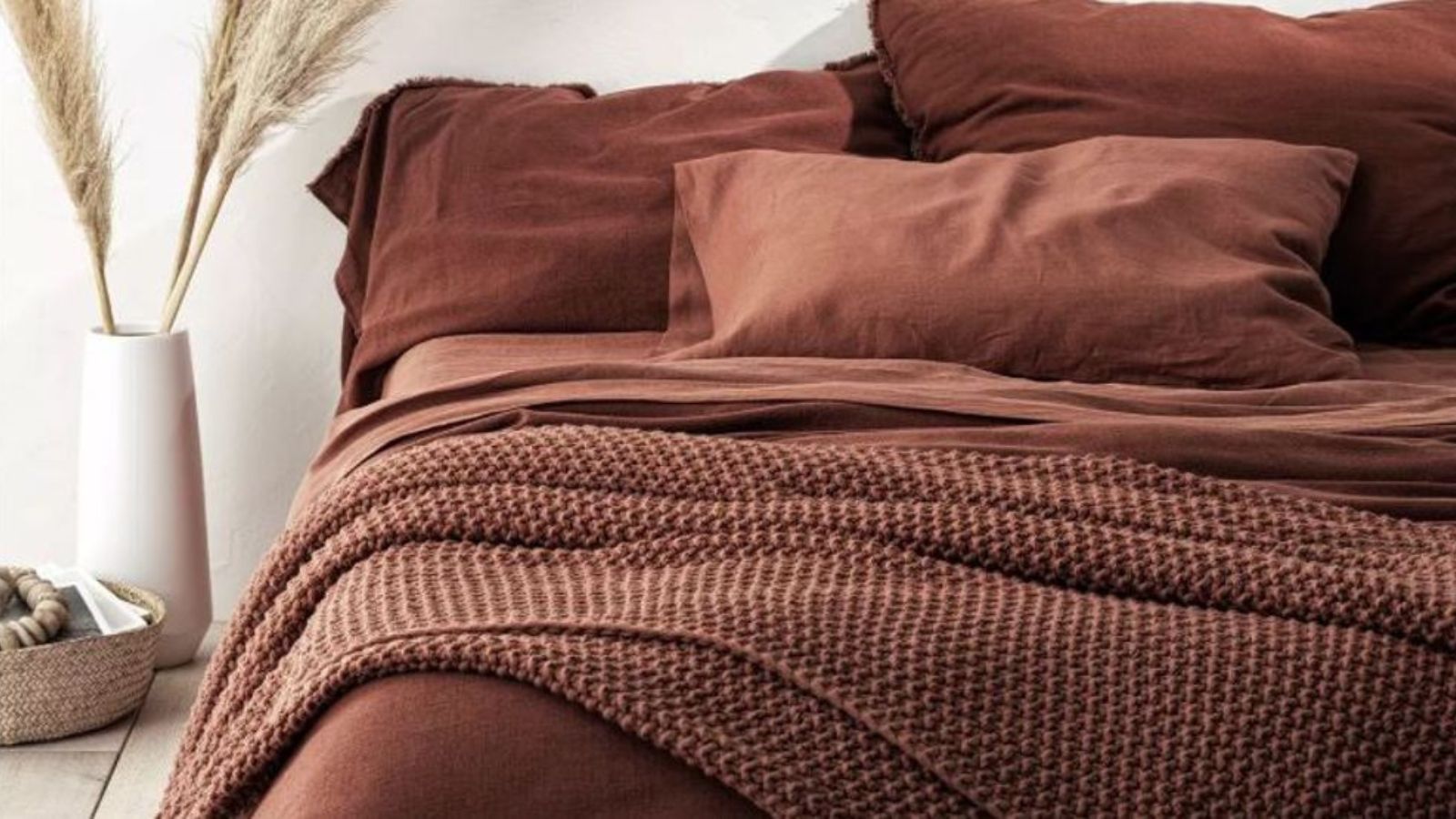 Best places to buy affordable bedding 2025 – save on sheets and shams with these budget-friendly brands
Best places to buy affordable bedding 2025 – save on sheets and shams with these budget-friendly brandsThe best affordable bedding should look and feel expensive − here are my expert recommendations for where and what to shop
By Emilia Hitching Last updated
-
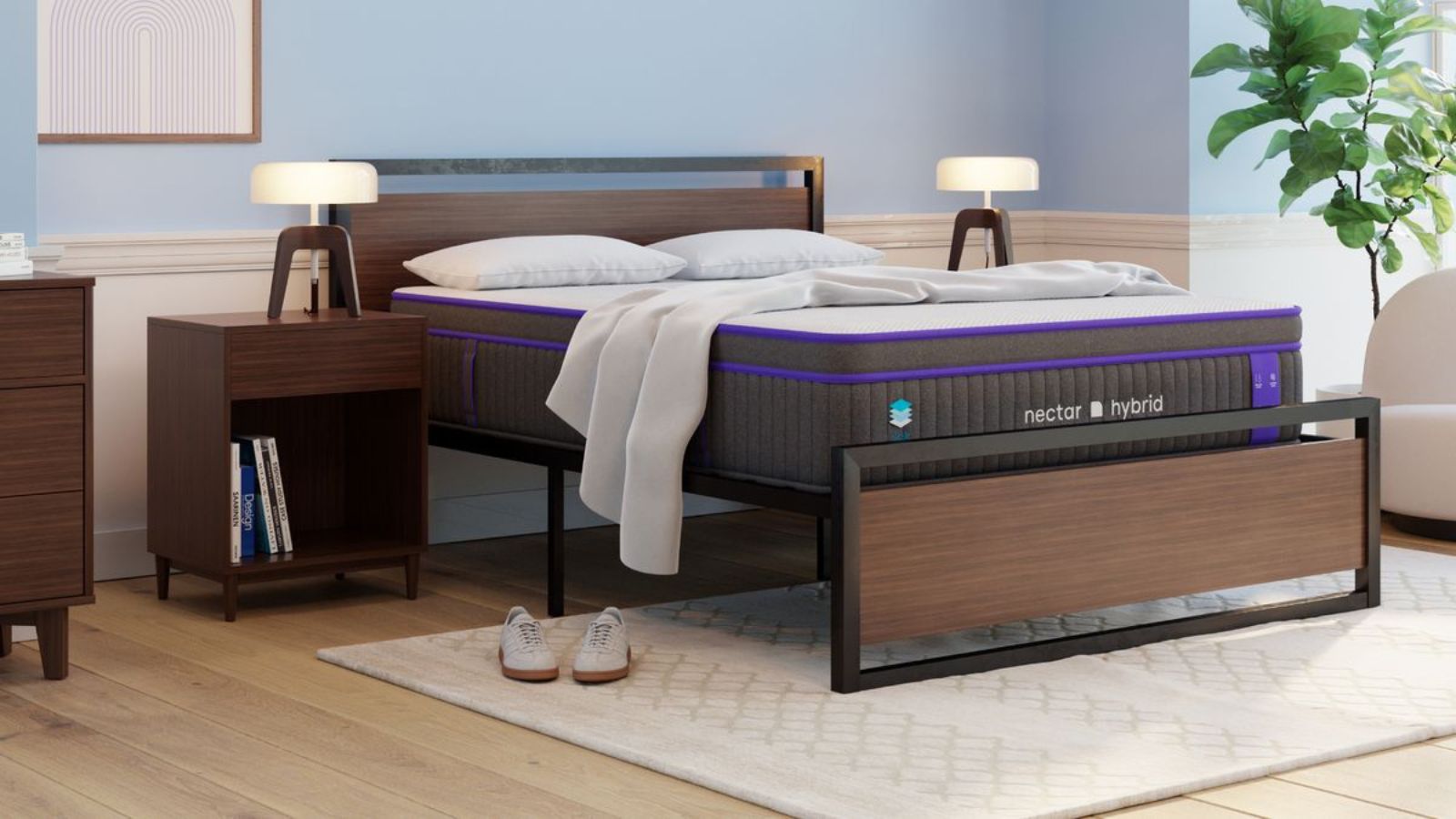 I tried the Nectar Premier Hybrid Mattress – it's so much better than their basic models
I tried the Nectar Premier Hybrid Mattress – it's so much better than their basic modelsCompared to the Nectar Classic Foam Mattress, the Nectar Premier Hybrid boasts far superior edge support and thermoregulation
By Millie Hurst Last updated
-
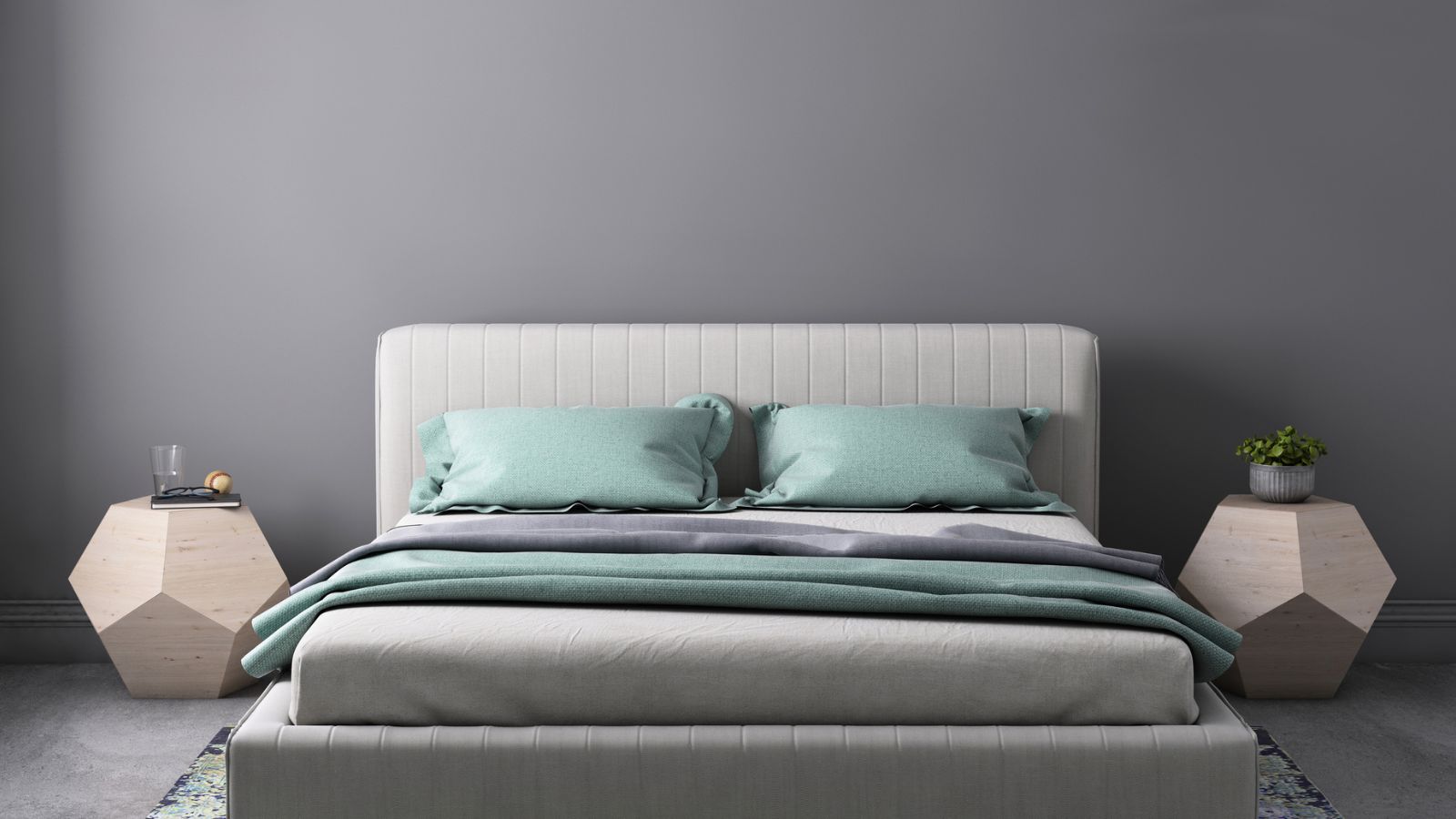 5 signs you're sleeping on a bad mattress − how to spot the red flags
5 signs you're sleeping on a bad mattress − how to spot the red flagsI asked medical professionals and sleep scientists how to spot the signs you're sleeping on a bad mattress and when it's time to upgrade
By Emilia Hitching Last updated
-
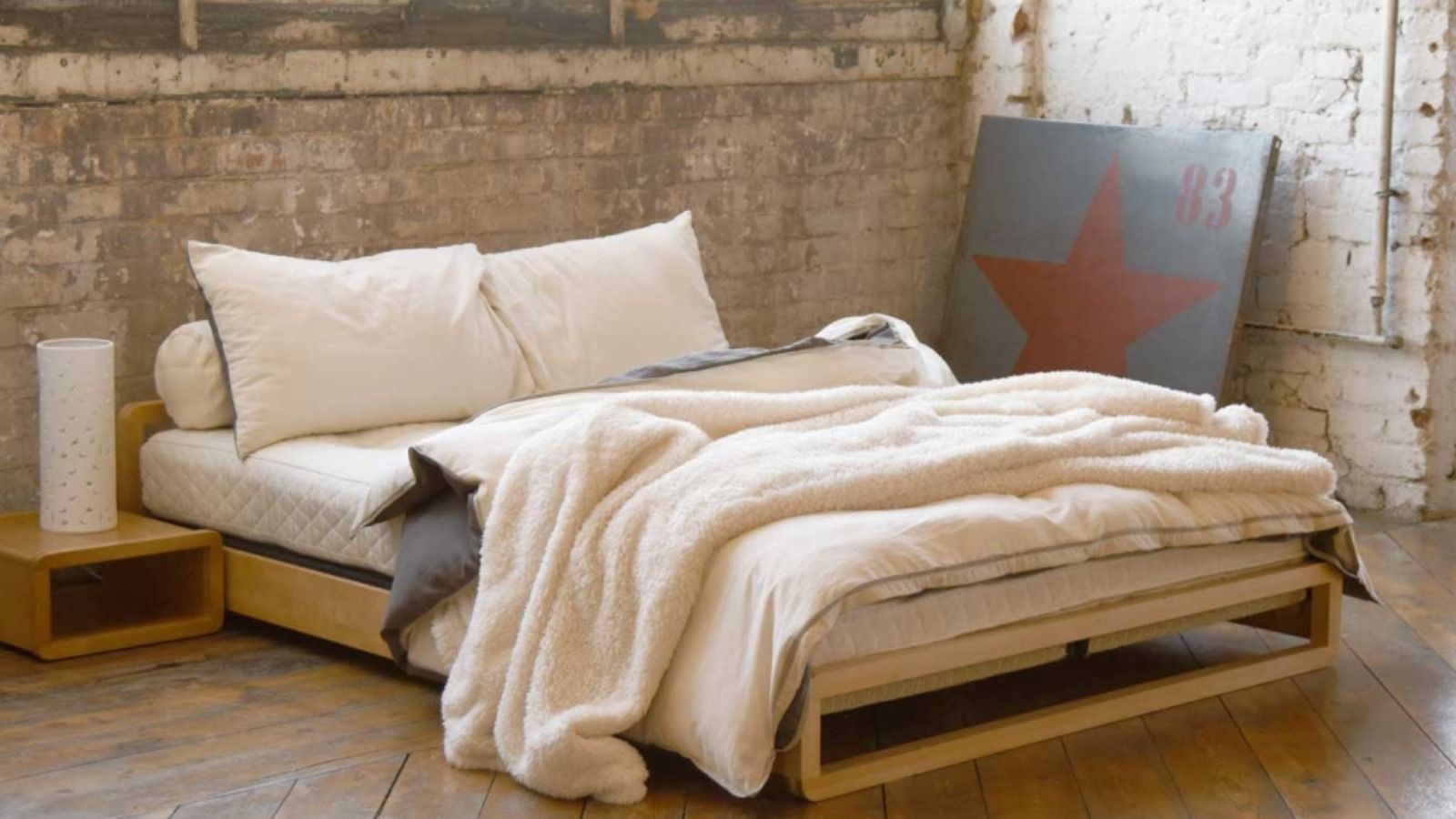 What is a futon mattress? Your expert guide
What is a futon mattress? Your expert guideFor flexible comfort and short-term stays, there's nothing like a futon mattress − I've searched the web to bring you the best fold-out beds
By Emilia Hitching Last updated
-
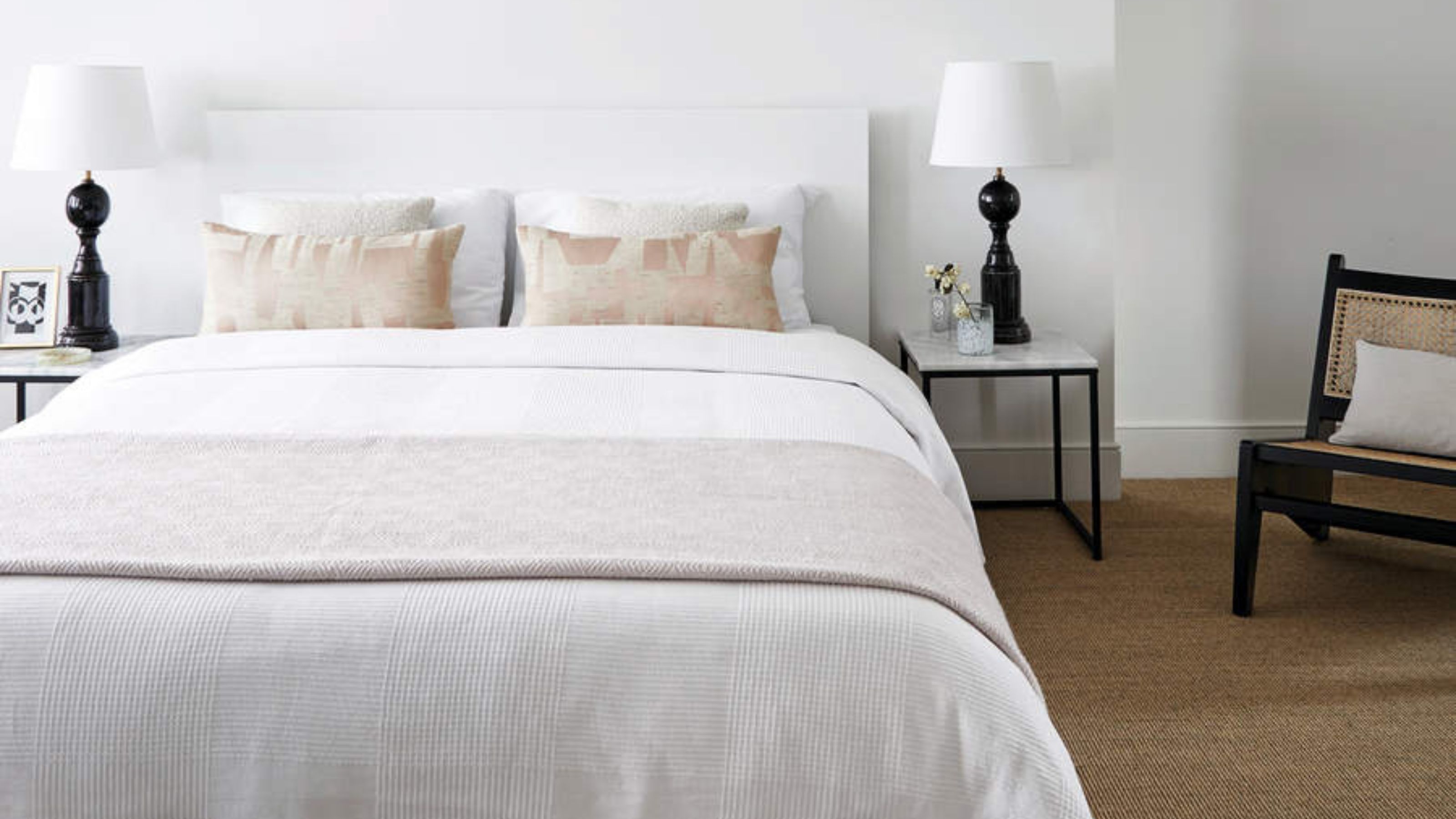 Platform bed vs box spring – what's the difference and which is best for you?
Platform bed vs box spring – what's the difference and which is best for you?Unsure whether a platform bed or a box spring is right for your set up? We break down these two mattress foundation options
By Alison Barretta Published
-
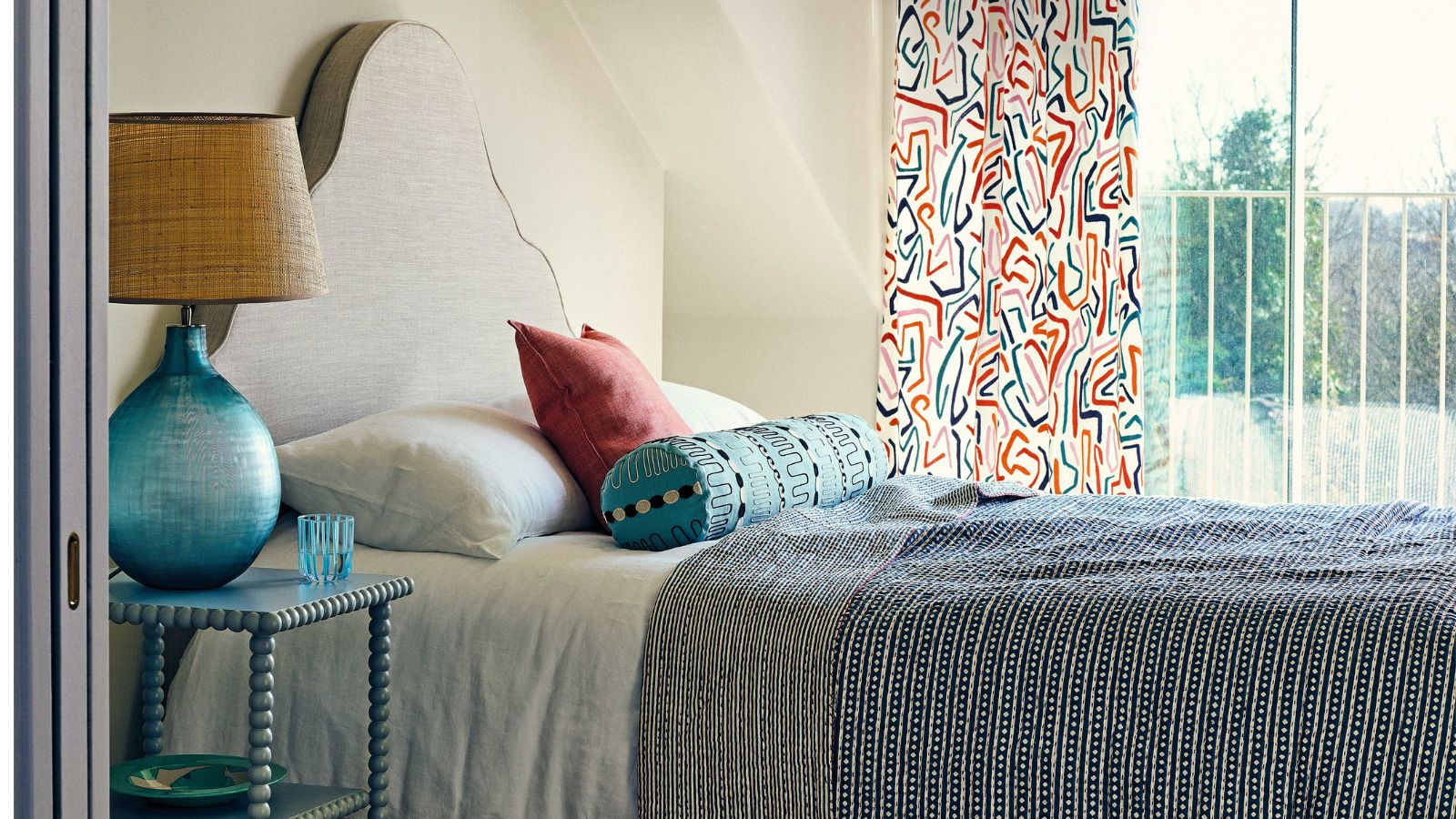 What is a platform bed? Everything you need to know about this stylish mattress support
What is a platform bed? Everything you need to know about this stylish mattress supportLearn how this low profile bed frame can elevate the look of your bedroom
By Alison Barretta Published
-
 How long do memory foam mattresses last?
How long do memory foam mattresses last?I spoke to mattress testers and medical professionals to learn more about the lifespan of a memory foam mattress – plus, how to extend it
By Emilia Hitching Last updated